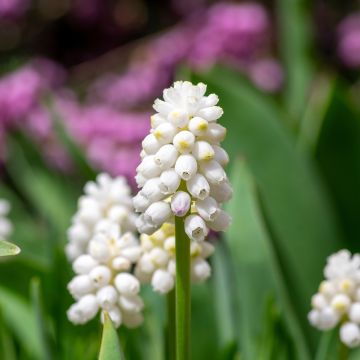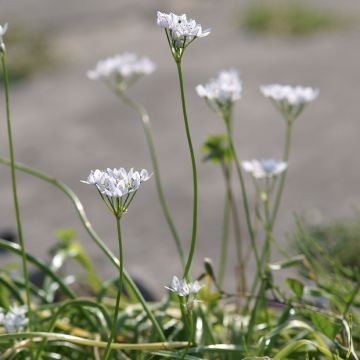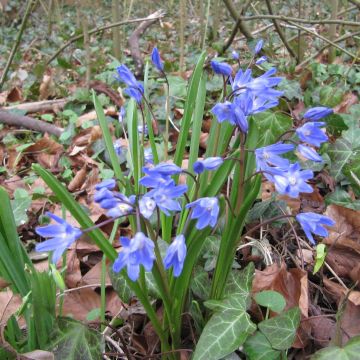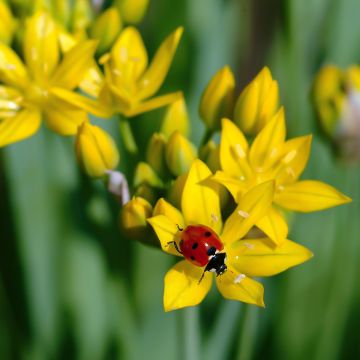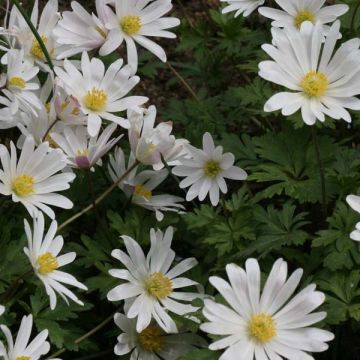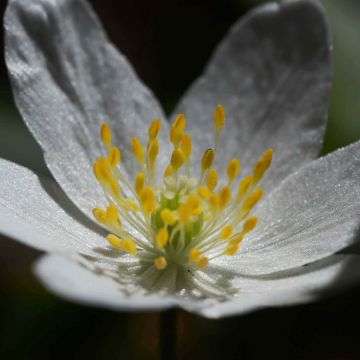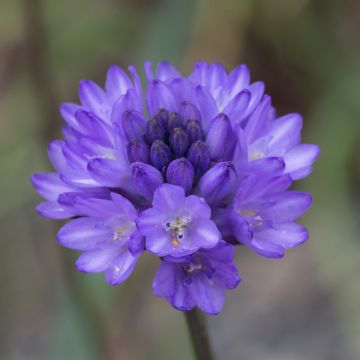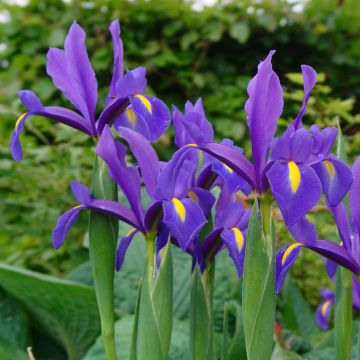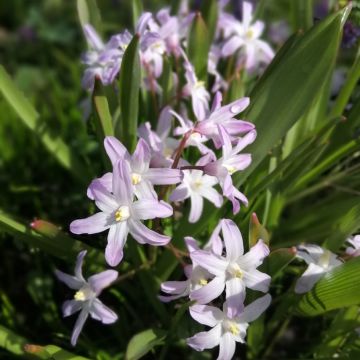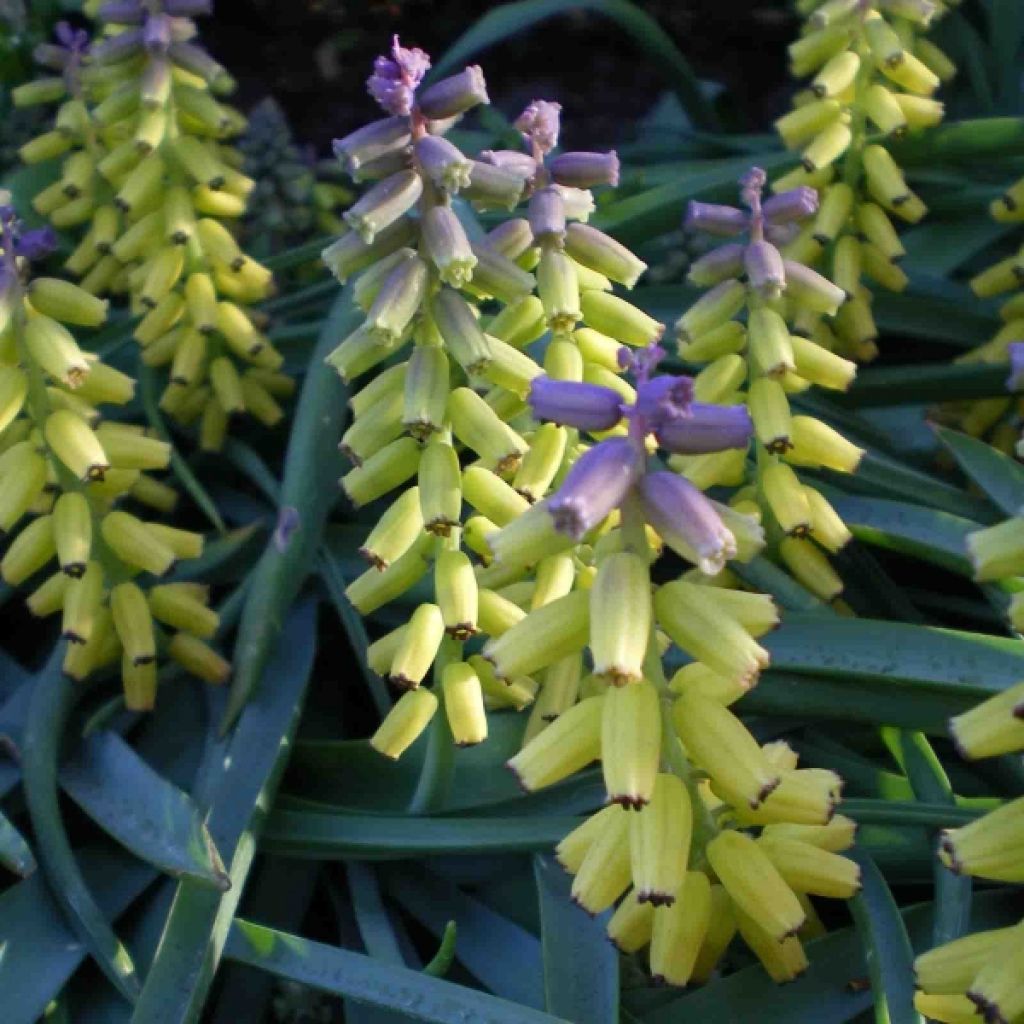

Muscari macrocarpum Golden Fragrance
Muscari macrocarpum Golden Fragrance
Muscari macrocarpum Golden fragrance
Golden Grape Hyacinth, Yellow Muscari
Bulbs of good size already sprouting. Awaiting flowering...
Isa, 23/12/2025
Special offer!
Receive a €20 voucher for any order over €90 (excluding delivery costs, credit notes, and plastic-free options)!
1- Add your favorite plants to your cart.
2- Once you have reached €90, confirm your order (you can even choose the delivery date!).
3- As soon as your order is shipped, you will receive an email containing your voucher code, valid for 3 months (90 days).
Your voucher is unique and can only be used once, for any order with a minimum value of €20, excluding delivery costs.
Can be combined with other current offers, non-divisible and non-refundable.
Why not try an alternative variety in stock?
View all →This plant carries a 6 months recovery warranty
More information
We guarantee the quality of our plants for a full growing cycle, and will replace at our expense any plant that fails to recover under normal climatic and planting conditions.

Would this plant suit my garden?
Set up your Plantfit profile →
Description
Muscari macrocarpum 'Golden Fragrance' is a small unique and rare bulbous plant derived from a botanical species of Grape Hyacinth, previously only available to collectors and experienced gardeners. 'Golden Fragrance' is easier to grow and has spring flowering that is just as fragrant but more colourful. It forms clusters of flowers with changing tones, ranging from purple-brown to sulphur-yellow and then pink-orange as they mature, offering a beautiful gradient of colours from the top to the bottom of the spike. This muscari has a bulb that likes to 'bake' in dry soil during summer and thrives in an exposed rockery. It is moderately hardy and also grows well in a deep pot, protected from heavy frosts in colder regions.
Muscari macrocarpum (synonyms Muscarimia macrocarpa, Muscari moschatum var. Flavum, Muscarimia flavum) is a bulbous plant belonging to the Asparagaceae family. It is native to the eastern Mediterranean basin, specifically the rocky areas of eastern Crete, the Amorgos islands, and southwestern Turkey. These regions are characterized by long dry and hot summers, which are essential for the proper maturation of the bulbs. These ovoid bulbs, much larger than those of other muscaris, also develop thick, fleshy, whitish roots. 'Golden Fragrance' is more prolific and vigorous and also slightly hardier, tolerating brief frosts around -15°C (5°F) in well-drained soil.
The plant does not exceed 20 cm (8in) high when flowering. The leaves emerge from the ground in January. They are slightly succulent, greenish-grey, 20 to 30 cm (8 to 12in) long, linear, gutter-shaped, and initially form an upright clump. It will flower in March-April depending on the region, for nearly a month. From the collapsing foliage, a rigid stem of 15-20 cm (6-8in) high emerges, bearing a large conical flower spike with numerous flower buds tightly packed together. The brown-purple buds open into tubular flowers 1 cm (0in) long, ranging from light violet to lemon yellow and then salmon. Their amazing sweet scent evokes lemon and banana. The flowers are pollinated by insects, then produce triangular fruits called capsules, containing a few black seeds.
Muscari macrocarpum 'Golden Fragrance' is a good plant for a dry garden, in a mild climate. It has a unique and pleasantly fragrant flower that adds a touch of variety to exposed rockeries and raised flower beds. Growing it in a pot allows you to enjoy its flowering up close, in all regions, and protect it from humidity and cold in winter. You can plant it with botanical crocuses, Echinops ritro, Persian fritillary, or arid zone narcissus (tazetta) in the rockery. In a pot, you can pair it with pansies, primroses, or other muscaris. In Greece, this little bulbous plant is considered a good luck charm.
Tip: Plant in groups of 100 bulbs, mixing the varieties to create a spectacular mass effect.
Report an error about the product description
Plant habit
Flowering
Foliage
Botanical data
Muscari
macrocarpum
Golden fragrance
Hycinthaceae
Golden Grape Hyacinth, Yellow Muscari
Mediterranean
Other Muscari
View all →Planting and care
Muscari macrocarpum 'Golden fragrance' is best planted in the autumn, 8cm (3in) deep and 7cm (3in) apart, in a slightly acidic, neutral or slightly chalky, very well-drained soil, in full sun and a warm, sheltered position, protected from cold and dry winds. In the wild, it grows in rocky soils that do not retain water. Its fleshy roots descend quite deeply into the pockets of loose soil between the stones. It needs summer heat to 'cook' in dry soil to flower well. In regions with harsh winters, mulch the soil or store the bulbs. Divide clumps every 5 years, in June when the leaves turn yellow.
Planting period
Intended location
Care
-
, onOrder confirmed
Reply from on Promesse de fleurs
Similar products
Haven't found what you were looking for?
Hardiness is the lowest winter temperature a plant can endure without suffering serious damage or even dying. However, hardiness is affected by location (a sheltered area, such as a patio), protection (winter cover) and soil type (hardiness is improved by well-drained soil).

Photo Sharing Terms & Conditions
In order to encourage gardeners to interact and share their experiences, Promesse de fleurs offers various media enabling content to be uploaded onto its Site - in particular via the ‘Photo sharing’ module.
The User agrees to refrain from:
- Posting any content that is illegal, prejudicial, insulting, racist, inciteful to hatred, revisionist, contrary to public decency, that infringes on privacy or on the privacy rights of third parties, in particular the publicity rights of persons and goods, intellectual property rights, or the right to privacy.
- Submitting content on behalf of a third party;
- Impersonate the identity of a third party and/or publish any personal information about a third party;
In general, the User undertakes to refrain from any unethical behaviour.
All Content (in particular text, comments, files, images, photos, videos, creative works, etc.), which may be subject to property or intellectual property rights, image or other private rights, shall remain the property of the User, subject to the limited rights granted by the terms of the licence granted by Promesse de fleurs as stated below. Users are at liberty to publish or not to publish such Content on the Site, notably via the ‘Photo Sharing’ facility, and accept that this Content shall be made public and freely accessible, notably on the Internet.
Users further acknowledge, undertake to have ,and guarantee that they hold all necessary rights and permissions to publish such material on the Site, in particular with regard to the legislation in force pertaining to any privacy, property, intellectual property, image, or contractual rights, or rights of any other nature. By publishing such Content on the Site, Users acknowledge accepting full liability as publishers of the Content within the meaning of the law, and grant Promesse de fleurs, free of charge, an inclusive, worldwide licence for the said Content for the entire duration of its publication, including all reproduction, representation, up/downloading, displaying, performing, transmission, and storage rights.
Users also grant permission for their name to be linked to the Content and accept that this link may not always be made available.
By engaging in posting material, Users consent to their Content becoming automatically accessible on the Internet, in particular on other sites and/or blogs and/or web pages of the Promesse de fleurs site, including in particular social pages and the Promesse de fleurs catalogue.
Users may secure the removal of entrusted content free of charge by issuing a simple request via our contact form.
The flowering period indicated on our website applies to countries and regions located in USDA zone 8 (France, the United Kingdom, Ireland, the Netherlands, etc.)
It will vary according to where you live:
- In zones 9 to 10 (Italy, Spain, Greece, etc.), flowering will occur about 2 to 4 weeks earlier.
- In zones 6 to 7 (Germany, Poland, Slovenia, and lower mountainous regions), flowering will be delayed by 2 to 3 weeks.
- In zone 5 (Central Europe, Scandinavia), blooming will be delayed by 3 to 5 weeks.
In temperate climates, pruning of spring-flowering shrubs (forsythia, spireas, etc.) should be done just after flowering.
Pruning of summer-flowering shrubs (Indian Lilac, Perovskia, etc.) can be done in winter or spring.
In cold regions as well as with frost-sensitive plants, avoid pruning too early when severe frosts may still occur.
The planting period indicated on our website applies to countries and regions located in USDA zone 8 (France, United Kingdom, Ireland, Netherlands).
It will vary according to where you live:
- In Mediterranean zones (Marseille, Madrid, Milan, etc.), autumn and winter are the best planting periods.
- In continental zones (Strasbourg, Munich, Vienna, etc.), delay planting by 2 to 3 weeks in spring and bring it forward by 2 to 4 weeks in autumn.
- In mountainous regions (the Alps, Pyrenees, Carpathians, etc.), it is best to plant in late spring (May-June) or late summer (August-September).
The harvesting period indicated on our website applies to countries and regions in USDA zone 8 (France, England, Ireland, the Netherlands).
In colder areas (Scandinavia, Poland, Austria...) fruit and vegetable harvests are likely to be delayed by 3-4 weeks.
In warmer areas (Italy, Spain, Greece, etc.), harvesting will probably take place earlier, depending on weather conditions.
The sowing periods indicated on our website apply to countries and regions within USDA Zone 8 (France, UK, Ireland, Netherlands).
In colder areas (Scandinavia, Poland, Austria...), delay any outdoor sowing by 3-4 weeks, or sow under glass.
In warmer climes (Italy, Spain, Greece, etc.), bring outdoor sowing forward by a few weeks.






























